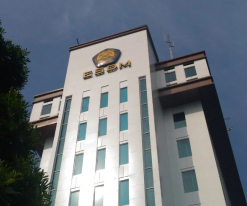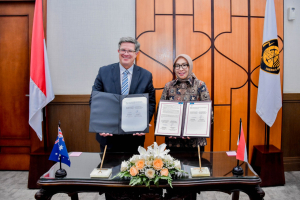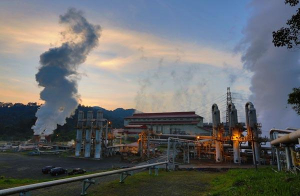Indonesia to offer 12 geothermal power plant projects to investors
The Ministry of Energy and Mineral Resources (ESDM) is set to offer 12 geothermal power plant (PLTP) projects to investors, with a total investment requirement of US$2.16 billion (Rp35.19 trillion).
Eniya Listiani Dewi, Director General of New, Renewable Energy and Energy Conservation (EBTKE) at the Ministry of ESDM, emphasized the government's commitment to attracting investment in the geothermal sector. The ministry is actively identifying potential projects to expedite their development.
"Our primary focus is on base load energy sources, so both geothermal and hydropower are open for investment," Eniya told a hearing at the House of Representatives (DPR) in Jakarta on Tuesday, July 9, 2024.
The 12 projects under consideration are:
- Lahendong Bottoming Unit 1: 15 MW;
- Ulubelu Small Scale: 30 MW;
- Lumut Balai Bottoming Units 1 and 2: 20 MW for cogeneration;
- Geothermal Lahendong Phases 7 and 8: 2x20 MW;
- Sarula Phase 2 (Sibual-bual): 50 MW;
- Ijen Phase 2: 30 MW;
- Salak Phase 7: 55 MW;
- Ulumbu: 30 MW;
- Candradimuka: 40 MW;
- Bukit Daun: 30 MW;
- Klabat Wineru: 40 MW;
- Hu'u Daha: 60 MW.
Geothermal potential and global standing
Indonesia is home to 40 percent of the world's geothermal reserves, positioning it as a major player in geothermal energy.
As of 2020, Indonesia had the second-largest geothermal power capacity globally, with 2,133 MW, contributing 3.01 percent to the national power grid. The United States leads with 3,714 MW, followed by the Philippines at third position with 1,918 MW.
The global geothermal power capacity reached 15,608 MW by the end of 2020. However, the pandemic has slowed progress in drilling, construction, and workforce deployment.
Future targets and plans
The Ministry of ESDM aims to achieve 9.3 GW of geothermal power capacity by 2035.
To maximize this potential, there are plans to form a state-owned geothermal holding company, comprising PT Pertamina Geothermal Energy, PT PLN Gas and Geothermal, and PT Geo Dipa Energi.
These initiatives underscore Indonesia's commitment to leveraging its geothermal resources and bolstering its renewable energy sector.
Tag
Already have an account? Sign In
-
Start reading
Freemium
-
Monthly Subscription
30% OFF$26.03
$37.19/MonthCancel anytime
This offer is open to all new subscribers!
Subscribe now -
Yearly Subscription
33% OFF$228.13
$340.5/YearCancel anytime
This offer is open to all new subscribers!
Subscribe now






